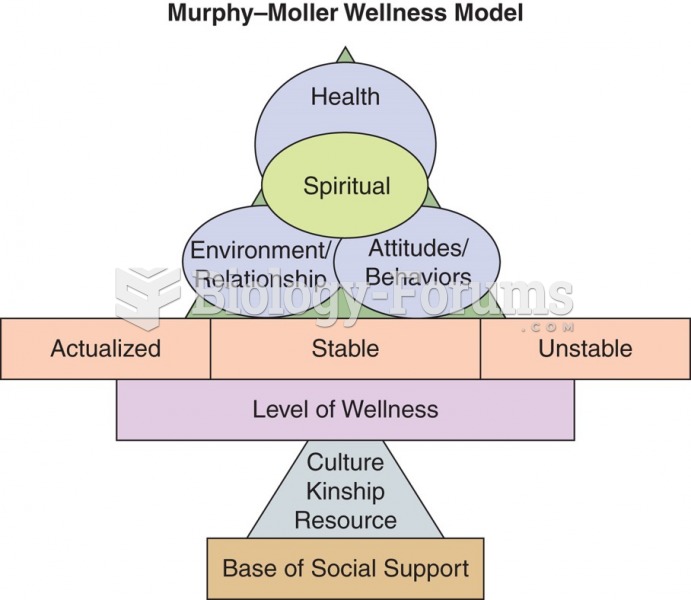|
|
|
A recent study has found that following a diet rich in berries may slow down the aging process of the brain. This diet apparently helps to keep dopamine levels much higher than are seen in normal individuals who do not eat berries as a regular part of their diet as they enter their later years.
A seasonal flu vaccine is the best way to reduce the chances you will get seasonal influenza and spread it to others.
Intradermal injections are somewhat difficult to correctly administer because the skin layers are so thin that it is easy to accidentally punch through to the deeper subcutaneous layer.
There are more sensory neurons in the tongue than in any other part of the body.
According to the FDA, adverse drug events harmed or killed approximately 1,200,000 people in the United States in the year 2015.







